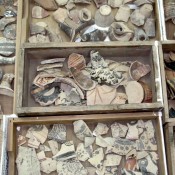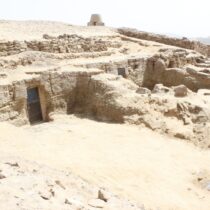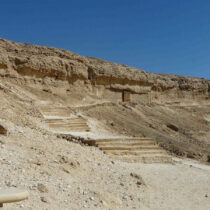The 43rd International Conference on Computer Applications and Quantitative Methods in Archaeology (CAA) 2015 will be held in Italy, Siena, 30 March-03 April 2015. Deadline for submission of abstracts is 20 November 2014.
The http://kerameikos.org scientific committee invites presentations and discussion about linked data and pottery databases for a roundtable at the CAA 2015 conference (http://caaconference.org/).
The indestructible nature of pottery has left an abundant amount of material in the archaeological record. Vessels were formed into a variety of shapes and sizes which inform the modern scholar about their possible function and/or manufacturing process. In addition to being an excellent tool for dating, pottery also enables researchers to reconstruct the nature of a site and/or point to evidence of trade between groups of people. Some types of pottery even exhibit additional decoration that reflects the style of a certain period, the visual language of a region, or scenes that offer information about religion, daily life, literature, or contemporary events.
Ceramics exist in a variety of databases within museum collections, archives, or as part of excavations or surveys. The basic ideas underlying the classification of ancient Mediterranean pottery (e.g., shape, production place, painter, potter, iconography, etc.) are shared across languages, but the aggregation of data on a massive scale cannot be undertaken without standardised identifiers and ontologies. Presently, there are no firm standards for representing and/or publishing pottery datasets on the web, and, for this reason, it is difficult to query across multiple collections for research purposes. Linked Open Data (LOD) can play a vital role in ameliorating some of these technical challenges. Building on the methodologies developed for Nomisma.org, a collaborative enterprise that seeks to define the intellectual concepts of numismatics, we have undertaken a new project, Kerameikos.org, that likewise will apply these technologies to pottery. Kerameikos.org, a thesaurus that seeks to define pottery concepts with URIs and RDF, will enable those publishing ceramic data to encode their information in an accessible manner, following emerging web standards in the cultural heritage community.





